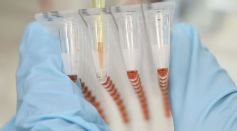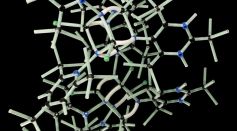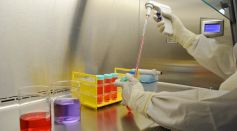Tags: Dna
Toxic Masculinity, Repetitive Sections of Y Chromosomes Results in Shorter Life Span for Male Flies

Can CRISPR Switch Gene Controls Without Touching DNA? Here's What Experts Say
DNA Shows Early European Migrants Regularly Interbred with Neanderthals

Origin of Life Possibly Begins With XNA Before RNA, DNA
Australasian DNA Discovered in South American Tribes Ancient Bloodline: How Did it Happen?

Scientists Discover Technology That Could Detect Human DNA From the Air

COVID-19 Fatalities: Many Patients Have Virus in Their Cardiac Tissues

Scientists Trace Evolution of Gene Variant That Makes People Vulnerable to Tuberculosis

Single Molecule Used to Store US Declaration of Independence
Did Scientists Just Discover The Oldest DNA Ever From a Million-Year-Old Mammoth?
Discovery of More than 40 Teeth in China Challenges Notions About Human Evolution

Biologists Attempt To Solve a Century-Old Paradox: The Reason Cancer Cells Waste a Lot of Energy

Scientists Reveal Humans Were Drinking Milk Before They Could Even Digest It
Bringing Back Dinosaurs Using Amber-Encased DNA Could Also Bring Back Diseases, Scientist Warns
Rare Four-Stranded DNA Unraveled for the First Time

Myth Debunked: COVID-19 Vaccines Cannot Alter a Person’s DNA
NIST Creates A "How-To Tutorial" for DNA Origami

Identical Twins Don’t Share the Same DNA All The Time
High-Altitude Living Changed the Epigenetics of Peruvians

Scientists Uncover Approach That Could Reverse Age-Related Vision Loss
Most Popular

The Strongest Tornadoes Ever Recorded: Scientific Breakdown of Extreme Tornado Events

Antibiotic Resistance: How It Develops and Why Misuse of Antibiotics Is Dangerous

How Solar Activity Shapes Our Planet: What the Next Solar Maximum Means for Earth

Can Scientists Predict Earthquakes? The Latest Advances in Seismic Forecasting Explained




